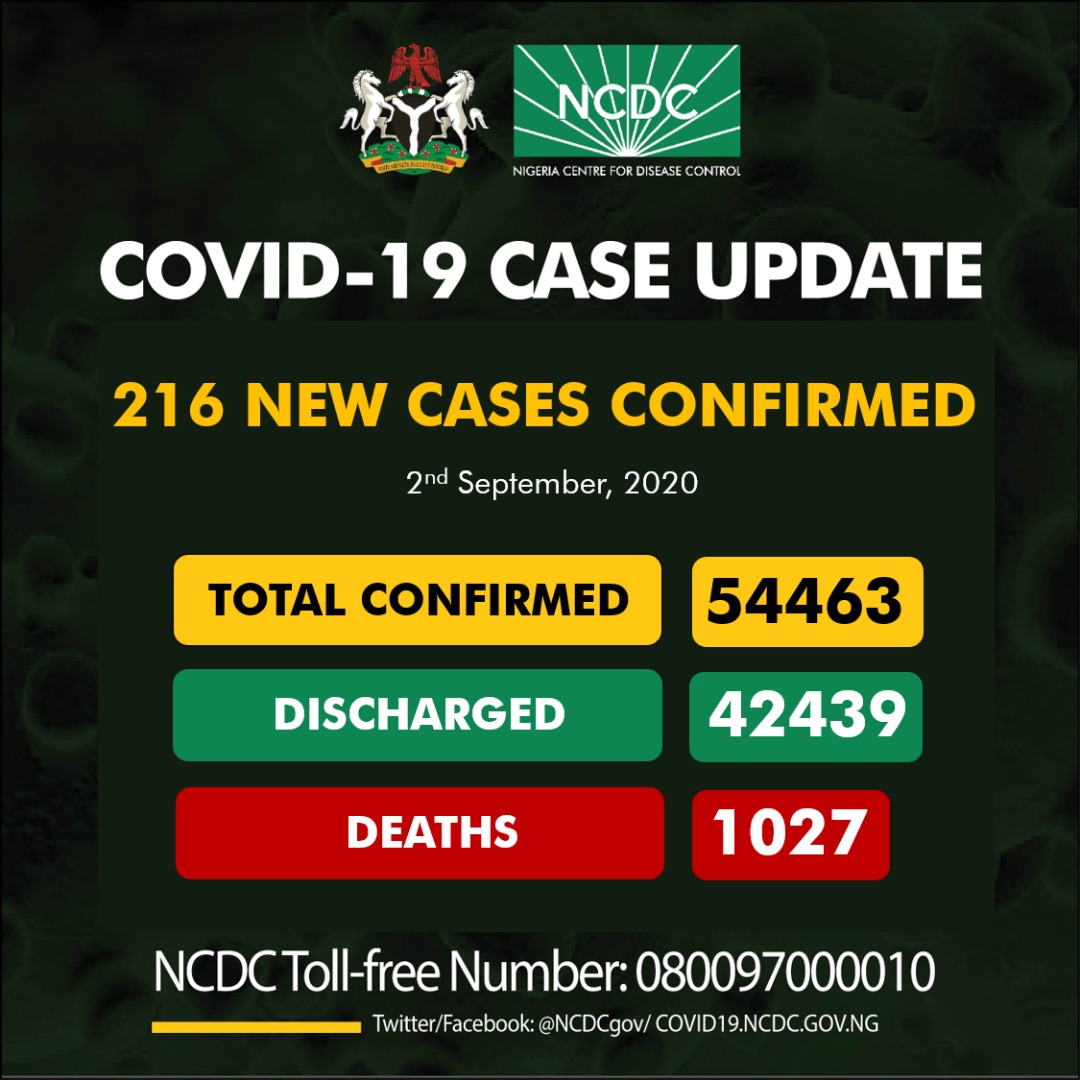The Nigeria Centre for Disease Control (NCDC) has announced four deaths and 216 fresh cases of COVID-19, taking the total infections in the country to 54, 463.
SEE ALSO: NECO, RMAFC collaborate with EFCC to end corruption
The NCDC made this known on its official twitter handle on Wednesday.
The health agency said that a multi-sectoral national Emergency Operations Centre (EOC), activated at Level 3 had continued to coordinate the national response activities across the country.
It disclosed that the new infections were recorded in 15 states and the Federal Capital Territory (FCT).
The NCDC stated that of the 216 new cases, Plateau had the highest number with 59, followed by Rivers, Abia, and Lagos which had 27, 22, and 20 respectively.
Others were Oyo – 18, Enugu – 17, Kaduna – 11, FCT – 11, Ogun – 10, Ebonyi – four, Osun – four, Ekiti – four, Delta – three, Edo – three, Akwa Ibom – two, and Bauchi – one.
The health agency said that this brought the total number of infections in the country since its first index case in February, 2020 to 54,463.
It noted that those who had lost the their lives to the virus in country increased by four, raising the death toll of infections to 1,027.
The health agency also said that the number of recoveries in the country increased to 42,439 after 429 more patients were successfully treated and discharged from various isolation centres in the country.
It added that as at Monday, Nigeria had a total of 10,997, recoveries.
NCDC stated that this represented 20.19 per cent of the total confirmed cases with 77.92 per cent recoveries and 1.88 per cent deaths recorded.
Meanwhile, the health agency noted that the success of the public health response to COVID-19 was not dependent only on the efforts at the national level.
It said it was also dependent on the actions of various communities and individuals to adapt the messages and solutions to their local context.
“One good thing from Nigeria’s polio experience is a well developed vaccine delivery mechanism.
“What we now need to do is ensure we have the right data on immunity levels of our population to guide decision making around prioritisation within our context,” it said.

